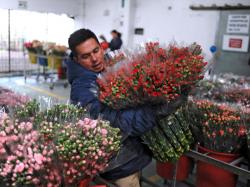Federal Update: US-Colombia Free Trade Agreement
June 24, 2010 | 2 min to read

The US-Colombia Free Trade Agreement will not be brought up for a vote in the Congress before the 2010 elections. The Obama Administration has decided that it needs some additional time to work to address labor rights issues and violence toward labor organizers in Colombia. Ways and Means Committee Chairman Sander Levin (D-MI) has made it clear that he wants improvements in these areas prior to any House vote. Additionally, Colombia FTA opponents such as labor unions and some environmentalists have made it clear that bringing up any FTA right now has a political downside. Of course, the US Chamber of Commerce and many other multi-national business organizations remain strongly supportive of the Colombia FTA and the other pending FTAs with Korea and Panama. However, in this era of 10 percent unemployment, free trade is unpopular in both parties.
Colombia had a presidential election on May 30. The ruling party candidate Juan Manuel Santos won 47 percent of the vote. That puts him in the driver's seat over second place finisher populist leader Antanas Mockus who received 21 percent. A mid-June runoff will be necessary as neither candidate received 50 percent last weekend. If he wins as expected, Santos will continue the policies of the current President Uribe and Colombia will not seek changes of its own to the FTA.
Chances are that Colombia will agree with the Obama Administration on some additional requirements for progress on labor rights in Colombia as part of a side deal. As US Trade Representative Ron Kirk noted at the US Chamber on May 18, “With U.S. encouragement, the Colombian government has already taken a number of steps to address violence against unionists, and to address concerns regarding its labor law regime. We have been conducting extensive fact-finding to identify additional steps Colombia’s government should take.” In early 2011, this side deal that does not reopen the text of the agreement will probably be concluded.
Ultimately, the Administration really wants the Colombia FTA to pass to reward Colombia for progress made in curbing violence and restoring economic growth. Additionally, free trade is viewed as a way to reduce the influence of nations like Venezuela and China in Latin America.
When the Colombia FTA moves in 2011, we are ready to remind the Obama Administration, senators and Congress that the US cut flower industry is the most adversely impacted group by trade with Colombia. If the current US market access for Colombia is made permanent, California cut flower farmers need some rebalancing of that trade relationship. Otherwise we might be forced to oppose the agreement. We will remind everyone that achieving full federal funding for the transition fund for our transportation and logistics program, will help to begin to level the playing field for California flower producers with Colombia.
In the end, CCFC and California flower farmers could be part of a new trade consensus that Ron Kirk and the Obama Administration are trying to create. As Kirk said in his May speech to the Chamber, “and building consensus on trade will pay huge dividends for our national economy, for the business community, and most importantly for America’s working families. They are the drivers of this economy. They are the people who want and need the jobs that trade can bring.”
Source: California Cut Flower Commission
